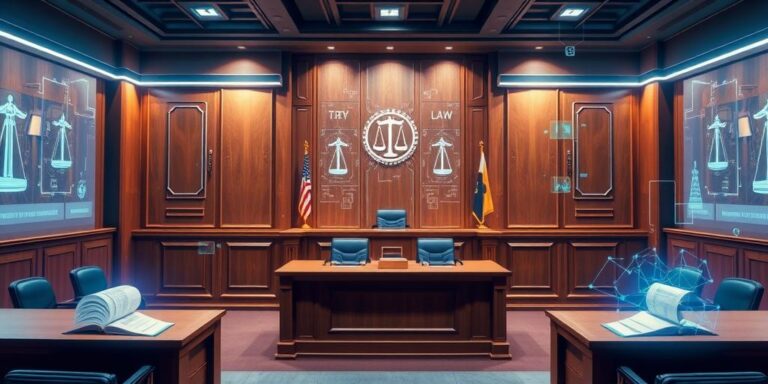The Future of Legal Tech: AI Lawyers and Judges? (2030 Outlook)
The legal landscape is on the cusp of a technological revolution. By 2030, Artificial Intelligence (AI) may fundamentally alter how legal services are delivered, accessed, and even adjudicated. This post explores the potential impacts of AI on lawyers, judges, and the legal system as a whole, examining the promises and challenges that lie ahead.
The Rise of AI in Legal Tech
AI is already making inroads into various aspects of legal practice. AI-powered tools are used for:
- Legal Research: Quickly sifting through vast databases of case law and statutes.
- Document Review: Identifying relevant information in large volumes of documents during discovery.
- Contract Analysis: Reviewing and analyzing contracts for potential risks and liabilities.
- Predictive Analytics: Forecasting case outcomes based on historical data.
These applications improve efficiency, reduce costs, and enhance accuracy. However, the next wave of AI development promises more transformative changes.
AI Lawyers: Augmentation, Not Replacement (Yet)
While the idea of a fully autonomous AI lawyer might seem like science fiction, AI is increasingly augmenting the capabilities of human attorneys. AI can assist with tasks such as:
- Legal Advice: Providing preliminary legal advice to clients based on their specific circumstances.
- Drafting Legal Documents: Automating the creation of routine legal documents like wills, contracts, and pleadings.
- Case Preparation: Assisting with the preparation of legal arguments and strategies.
However, the complexities of human judgment, empathy, and ethical considerations still require the expertise of human lawyers. AI is likely to remain a tool that enhances, rather than replaces, human lawyers in the foreseeable future. This is where the use of legal tech for lawyers becomes important.
AI Judges: Fairness, Efficiency, and Accountability
The prospect of AI judges raises more complex questions. While AI could potentially improve efficiency and reduce bias in judicial decision-making, it also raises concerns about transparency, accountability, and due process. AI judges could be used for:
- Automated Dispute Resolution: Resolving simple disputes through automated online platforms.
- Sentencing Recommendations: Providing judges with data-driven sentencing recommendations.
- Bias Detection: Identifying potential biases in judicial decision-making.
However, entrusting complex legal and ethical judgments to AI raises fundamental questions about the nature of justice. Human oversight and ethical guidelines will be crucial to ensure that AI judges are used responsibly and fairly. The use of technology in law firms can be a huge risk if not carefully thought out.
Challenges and Opportunities
The integration of AI into the legal system presents both challenges and opportunities:
- Bias and Fairness: AI algorithms can perpetuate and amplify existing biases if they are trained on biased data. Ensuring fairness and equity in AI-driven legal systems is essential.
- Transparency and Explainability: AI decision-making can be opaque and difficult to understand. Transparency and explainability are crucial to maintain public trust and ensure accountability.
- Data Security and Privacy: The use of AI in legal tech raises concerns about data security and privacy. Protecting sensitive legal information is paramount.
- Access to Justice: AI has the potential to improve access to justice by reducing costs and increasing efficiency. However, it is important to ensure that AI-driven legal services are accessible to all, regardless of their socioeconomic status.
Long-Tail Keyword Variations:
- “AI in legal practice 2030”
- “Future of legal tech jobs”
- “AI ethics in law”
- “Impact of AI on lawyers”
- “AI and access to justice”
Conclusion: Navigating the Future of Legal Tech
The future of legal tech is filled with both promise and peril. By embracing AI responsibly and ethically, we can create a legal system that is more efficient, accessible, and fair. However, it is crucial to address the challenges and ensure that AI is used to enhance, rather than undermine, the fundamental principles of justice. As we approach 2030, the legal profession must proactively engage in shaping the future of legal tech to ensure that it serves the best interests of society.




